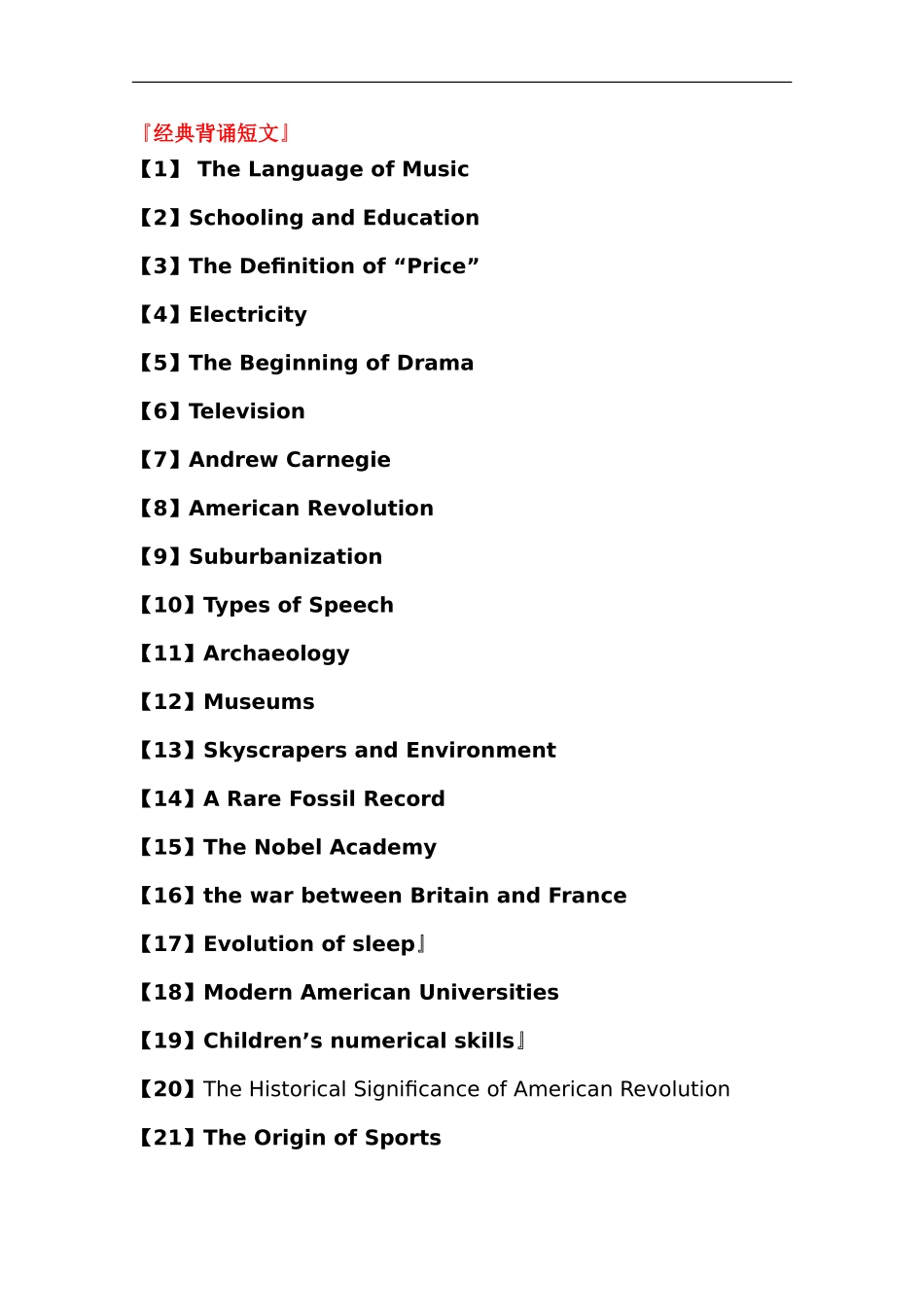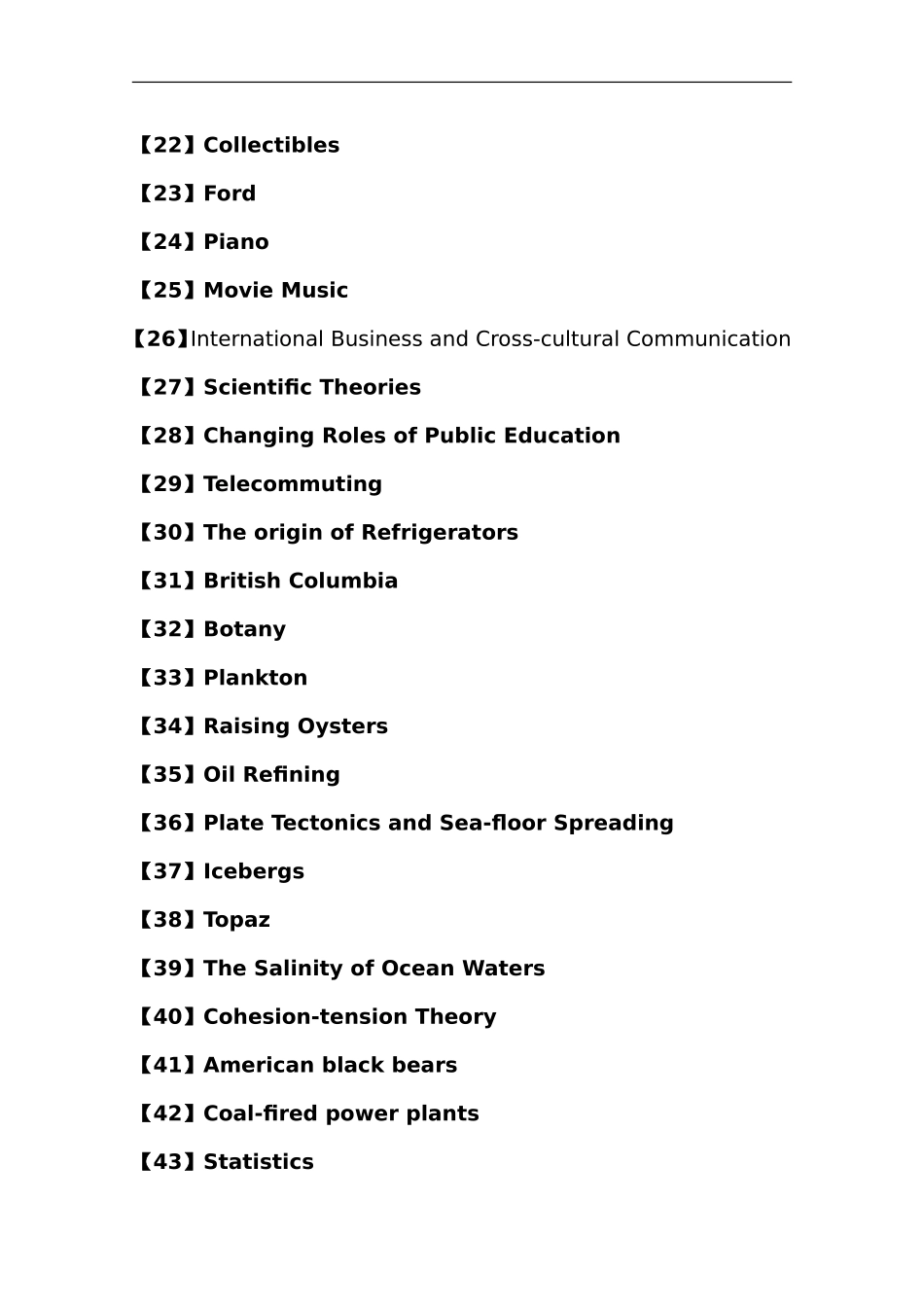『经典背诵短文』【1】 The Language of Music【2】Schooling and Education【3】The Definition of “Price”【4】Electricity【5】The Beginning of Drama【6】Television【7】Andrew Carnegie【8】American Revolution【9】Suburbanization【10】Types of Speech【11】Archaeology【12】Museums【13】Skyscrapers and Environment【14】A Rare Fossil Record【15】The Nobel Academy【16】the war between Britain and France【17】Evolution of sleep』【18】Modern American Universities【19】Children’s numerical skills』【20】The Historical Significance of American Revolution【21】The Origin of Sports【22】Collectibles【23】Ford【24】Piano【25】Movie Music【26】International Business and Cross-cultural Communication【27】Scientific Theories【28】Changing Roles of Public Education【29】Telecommuting【30】The origin of Refrigerators【31】British Columbia【32】Botany【33】Plankton【34】Raising Oysters【35】Oil Refining【36】Plate Tectonics and Sea-floor Spreading【37】Icebergs【38】Topaz【39】The Salinity of Ocean Waters【40】Cohesion-tension Theory【41】American black bears【42】Coal-fired power plants【43】Statistics【44】Obtaining Fresh water from icebergs【45】The source of Energy【46】Vision【47】Folk Cultures【48】Bacteria【49】Sleep【50】Cells and Temperature(End)』【1】 The Language of MusicThe Language of Music A painter hangs his or her finished pictures on a wall, and everyone can see it. A composer writes a work, but no one can hear it until it is performed. Professional singers and players have great responsibilities, for the composer is utterly dependent on them. A student of music needs as long and as arduous a training to become a performer as a medical student needs to become a doctor. Most training is concerned with technique, for musicians have to have the muscular proficiency of an athlete or a balle...


